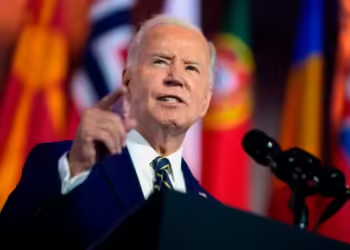Trump’s impact on the line in Texas special election
Susan Wright, the widow of the late Rep. Ron Wright, has Trump's endorsement over fellow Republican Jake Ellzey in Texas' 6th District.
POLITICO
By MARISSA MARTINEZ
A special election in Texas is set to test the enduring power of former President Donald Trump’s endorsement on Tuesday, as two Republicans compete for a fast-changing seat south of Dallas and Fort Worth.
Trump backed Susan Wright — the widow of the late Rep. Ron Wright, who died of complications from Covid-19 — just before the May 1 special primary, and he has reaffirmed his endorsement in events and statements throughout the runoff. But Wright, who has also gotten the nod from Sen. Ted Cruz and local politicians, is still facing a fight from fellow Republican Jake Ellzey, a state representative with support from former Gov. Rick Perry and a handful of other prominent Texans.
Trump’s endorsement may be one of the most valuable things in Republican politics, but Ellzey has been able to outspend Wright in the race, bringing in over $1.2 million to Wright’s $454,000 as of July 7. And while Wright has led Ellzey in several internal polls released by her campaign, uncertainty over exactly who will vote in a summer special election featuring two Republicans with similar ideological leanings means Ellzey can still hope for an upset come Tuesday.
“We are very similar,” Ellzey said on the Dallas-based Mark Davis radio show in early May. “I think the voters recognized, irrespective of some mailers that aren’t true, we are very close, hand-in-hand so to speak, philosophically.”
The Texas race kicks off several weeks of special elections highlighting the dynamics shaping both political parties. While the Texas campaign and another outside Columbus, Ohio, have tested how impactful Trump’s backing remains for Republican candidates, another primary centered in Cleveland is an opportunity for progressives to notch a big primary win, as former Bernie Sanders campaign chair Nina Turner faces off against the more moderate Shontel Brown.
Ellzey had focused heavily on his Navy fighter pilot background — something supporters like Rep. Dan Crenshaw (R-Texas) have also highlighted. Wright has leaned into her connections to Trump and other top GOP leaders in the state. The former president has top billing on the endorsements page of her website.
While Wright has leaned into her support from Trump, Ellzey has gotten some support from Democrats. Stephen Daniel, the Democratic nominee for the seat in 2020, tweeted that he would vote for Ellzey, though he stopped short of endorsing him.
Liberal voters could be an important factor in a district that grew in both racial diversity and Democratic vote share between the 2016 and 2020 presidential elections — though it’s unclear how many Democrats will turn out for a race without a Democrat on the ballot.
Wright entered the runoff for Texas’ 6th District seat with 19 percent of the vote. Though Ellzey matched her during early voting, he ended with 14 percent support, barely clearing his opponent, Democrat Jana Lynne Sanchez, by more than 300 votes. Sanchez conceded, having told POLITICO a month earlier that an all-Republican ballot in a “winnable district” was a bad omen for her party.
Wright’s campaign has criticized Ellzey for his Democratic endorsements, including Daniel’s tweet, which Ellzey quickly played down. The Club for Growth, a conservative, anti-tax group aligned with Trump, has thrown more than $200,000 into advertising against Ellzey, questioning his voting record while serving in the state House and highlighting moments he went against other Texas conservatives.
“Republicans want a real conservative who will actually show up, not a serial opportunist with a record of missing votes and supporting higher taxes,” Club for Growth president David McIntosh wrote in a statement.
Ellzey has sought distance from Democrats and highlighted Trump voters who support his campaign in his own ads. Anti-Ellzey mailers have associated him with Democrats, calling him a “puppet” and claiming he supported “amnesty for illegal immigrants.” Other critics have questioned why someone who had just entered the state House months earlier was now running for Congress.
During a July 16 rally for Ellzey in Arlington, Texas, Perry condemned the mailer attacks against his choice.
“Nothing irritates me more than the junk I have seen in the mailboxes talking about [Ellzey], and if you want to win an election that bad, I don’t want you to be my congressman,” Perry said.
Wright has also faced attacks before the May 1 election. She said she would seek help from the FBI and Justice Department after her supporters said they got robocalls claiming Wright had “murdered” her husband after obtaining a $1 million life insurance policy before his death.
“This is illegal, immoral, and wrong,” Wright wrote in a statement. “There’s not a sewer too deep that some politicians won’t plumb.”
Whatever attacks are flying between Wright, Ellzey and other Republicans in the district, though, the national party is happy not to have to invest in the district. With the race down to two Republicans, it can save resources for other races and the midterm elections instead.
“Democrats’ socialist agenda that has opened our borders, destroyed thousands of energy jobs and wants to raise middle-class taxes by trillions of dollars eliminated any chance of them being competitive in this district,” NRCC Chair Tom Emmer told POLITICO in May. “I look forward to welcoming a new Republican colleague to Congress.”









